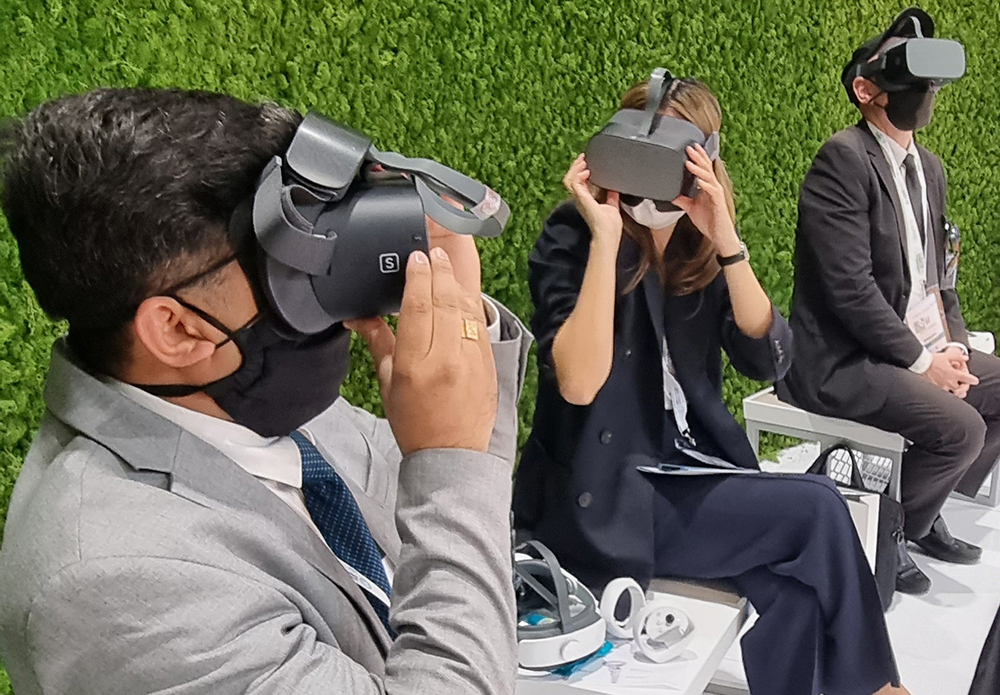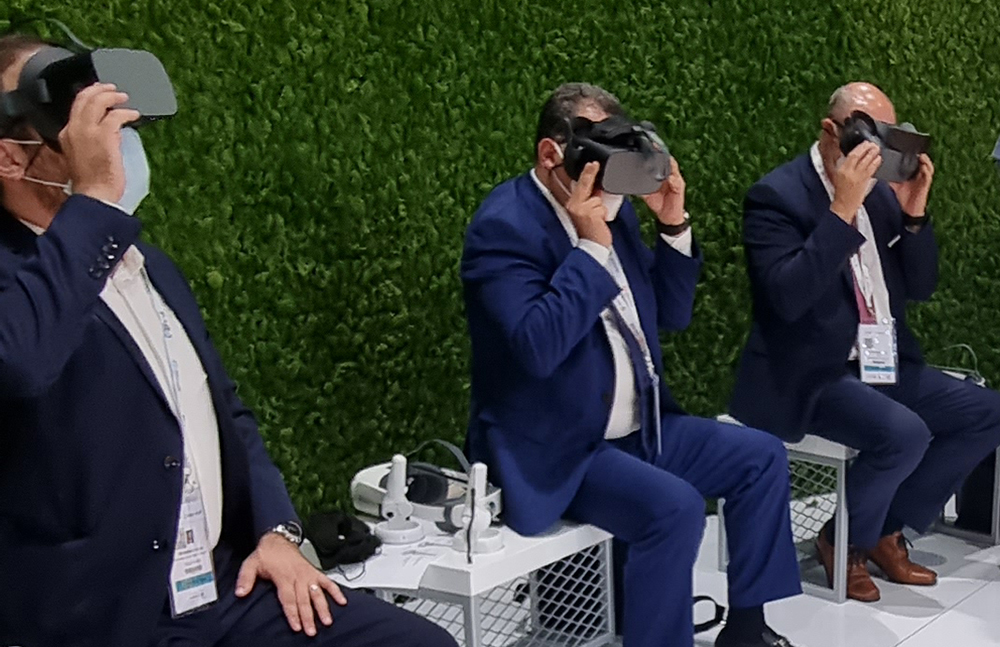Ready Player (Day) One: Upskilling Learners with VR-AR Learning before Going On-Site
16 March 2023
In the agile workplace, employers are discovering the benefits of using virtual, augmented, mixed, and extended reality (VR/AR/MR/XR) solutions
These immersive tools are training current and future workforces with a host of skills needed to operate in a successful working environment.
Gone are the days where instructors relied solely on the classroom, videos, and eLearning to educate students. The new classroom has become a virtual-first, interactive facility for preparing for vocations days before new hires are deployed to their physical work locations.
Companies are harnessing the power of immersive learning for soft skills like interpersonal communication, or advanced practical skills such as military combat or surgery. Global extended reality (XR) enterprises are rising to the challenge of streamlining educational processes while achieving clear key point indicators.
A 2022 ReportLinker analysis of global education markets shows VR education markets are expected to top $32.94 billion USD by 2026, with a compound annual growth rate (CAGR) of 39.7 percent. This will place a heavy emphasis on sales of VR hardware, software, and solutions capable of operating major real-time 3D (RT3D) engines to deliver on-the-fly training when needed.
Additionally, the flexibility to create bespoke training modules for a diverse group of learners remains key to selecting the right platform to deliver immersive learning content. Whether training students at K-12 grade schools to CEOs at the top of Fortune 500 companies, immersive learning firms are tackling the most salient needs across industry verticals.

Return on Investment Meets Job Well Done
Upskilling learners with virtual and augmented reality (VR/AR) solutions has led to reports of unprecedented returns on investment (ROI) for firms leveraging the technology.
One of the leading associations for the immersive industry, the XR Association partnered with the Martec Group to analyse the potential of XR learning. In the study, they found that around 92 percent of 250 human resource workers responded that immersive learning allowed their companies to recover from the COVID-19 pandemic. Additionally, 81 percent of those surveyed agreed XR had boosted learner outcomes.
The National Training Laboratory (NTL) also showed learner retention rates jumped 75 percent with XR learning, compared with 10 percent via reading and 5 percent using lecture styles.
A major PriceWaterhouseCooper (PwC) report found that around 40 percent of virtual learners improved their confidence compared to classroom learners. They also boosted confidence 35 percent more than e-Learners after training with VR.

Furthermore, VR learners completed their training four times faster than in the classroom, the report shows. Other metrics included a nearly fourfold (3.75x) increase in emotional connections to content and 2.3 times higher empathy compared to e-learners, the report added.
It also found that VR learners showed a fourfold increase in focus compared to e-learners and 1.5 times greater than classroom colleagues. VR training costs also offered greater savings at higher scales, becoming 52 percent cheaper than classroom environments at 3,000 students or higher.
ARuVR leverages the world’s first AR to VR platform capable of delivering omnichannel support to distributed learners. Their award-winning solution can deploy bespoke immersive training modules, either via XR developers or instructors, using generative AI backend systems. The London-based firm hosts clients such as the UK Government, Coca-Cola, Five Guys, NEOM and Aramco, among others.
—
This article first appeared in XR Today, 14th March 2023